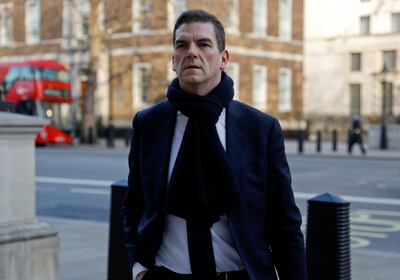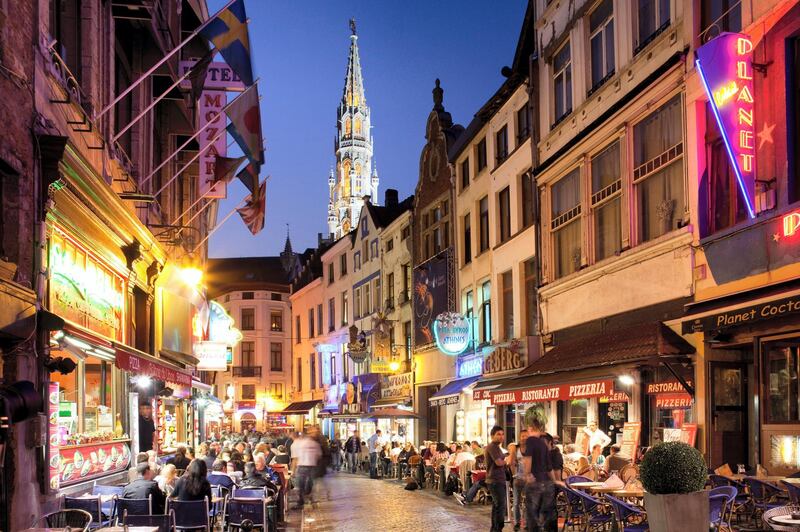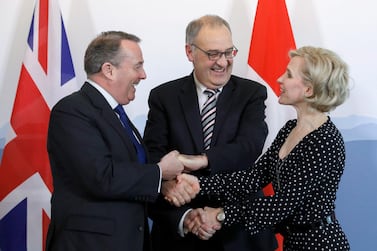When the UK’s chief Brexit negotiator was overheard offering a startling insight into government strategy in a Brussels bar on Monday night, many diplomats were surprised it hadn’t happened sooner.
The Belgian capital, home to the headquarters of the European Union and NATO, hums to the sound of snatches of conversation in busy cafes, while government officials hand over secret documents to reporters on street corners. With 5,400 diplomats, 40,000 EU employees and almost 1,000 permanently resident journalists from over 30 countries, the city where Brexit is being negotiated thrives on eavesdropping, gossip and subterfuge.
The place is crawling with hundreds of Russian and Chinese spies too, some of them posing as accredited journalists, according to officials who asked not to be named discussing security issues. European diplomats are warned to avoid frequenting certain bars because they’re told listening devices may pick up their conversations from other tables or through windows.
Visitors to offices in the UK’s representation must leave their phones at the reception desk. Officials working on sensitive information on high floors of EU institutions routinely close their blinds in case drones film through their windows.
“Brussels has now overtaken Vienna, and there is now a greater density of so-called intelligence services from outside the EU in Brussels than here,” Peter Gridling, counter-intelligence chief of Austria, a hub for spies during the Cold War, told reporters last year.
Nothing so audacious was used to catch out Olly Robbins, the usually ultra-discreet civil servant leading the UK’s Brexit talks on behalf of Prime Minister Theresa May. He was simply overheard chatting over a late-night beer in a quiet bar in Brussels’ Sofitel hotel by an ITV reporter who happened to be staying there.

Mr Robbins is reported to have said that Ms May will until March – just days before the deadline on the 29th – and again offer MPs her deal with the EU, which they have already rejected, or a long delay in the withdrawal.
The report of Mr Robbins’s remarks has the potential to destroy Ms May’s fragile plan to get her Brexit deal through the UK Parliament. The premier dismissed questions on the issue Wednesday, saying they were based on “relying on what someone said to someone else, as overheard by someone else in a bar.”
Back in Brussels, European diplomats working on Brexit admit there’s a level of distrust even between the group of 27 countries negotiating with the UK. Some have been observed sharing a drink, and probably intelligence about the negotiations, with British opposite numbers, a diplomat from an eastern European government said, speaking on condition of anonymity because of the sensitivity of the matter.
After a confidential Brexit document was leaked to a newspaper last year, another diplomat, from a northern European country, said he couldn’t look his counterparts in the eye at subsequent meetings as he wondered who had betrayed them.
When Brexit negotiations started in 2016, British officials were warned to be more cautious and to avoid chatting in places where spying and eavesdropping are more likely, a diplomat said. They are particularly worried about Russia and China but are also alert to being targeted by friendlier European countries who want to get a step ahead on Brexit.
Last June, Robbins’s European counterpart, the German Sabine Weyand, told EU Brexit diplomats during private talks that the UK had obtained her confidential presentation. This, she said, meant that it was possible British intelligence agents were listening into their meetings, according to a person present.
The truth was probably more straightforward, according to a British diplomat who works on Brexit in Brussels – the UK is more likely to simply have convinced a friendly insider to hand the document over.







